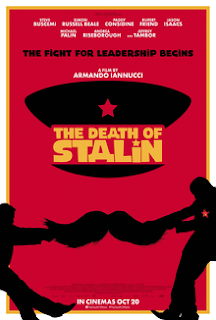"I'm Sorry To Differ With You Sir, But You Are The Caretaker. You've Always Been The Caretaker..."
In a year where the works of Stephen King have seemed to have taken siege upon both the big screen and the small, the re-release of Stanley Kubrick's The Shining ironically seeks out to remind how much the horror masterpiece differs from its' ghostly source material, and whilst King himself has famously distanced himself from the 1980 classic on a moral level, the haunting ambiguity and off-kilter tonal essence of Kubrick's classic once again reminds why such a movie is always part of the conversation when discussing the greatest and most influential horror movies of all time. Published in January of 1977, King's third novel quickly followed the breakout successes of Carrie and Salem's Lot, and whilst the story on the surface primarily focuses on the horrors of the Overlook Hotel and the toll it takes on the Torrance family, the underlying notions of alcoholism and regret mirrored the struggles of the novel's own during that period of time, resulting in The Shining being arguably King's most personal work up to that date, creating an understandable air of indifference from King to a movie released only three years later which decided to focus primarily on the supernatural elements of the novel rather than the subplots regarding familial tensions and the conflicted leading character of Jack Torrance to a larger extent portrayed on film. Thankfully for Kubrick, his version of The Shining is arguably more terrifying than one could have envisioned when adapting King's story from page to screen, thanks primarily to a typically maddened performance from Jack Nicholson whose portrayal of the writer's block inflicted father will arguably go down as his most iconic and memorable role within a career which goes down with arguably one of the greatest ever.
Whilst the casting of Nicholson seemed to many at the time to be one of ease over exploration, with Nicholson's Oscar winning performance as Randle McMurphy in One Flew Over the Cuckoo's Nest already showcasing Nicholson's penchant for portraying the slightly insane, the guidance of Kubrick as the film's master of puppets resulted in a live-action Jack Torrance which seeped with uncertainty and ferocious ingrained rage from beginning to end. With Shelley Duvall as the repressed, doe-eyed Wendy Torrance on Nicholson's arm and the youthful appearance of Danny Lloyd as son, Danny, a child afflicted with the titular mysterious power as coined by Scatman Crothers' Dick O'Halloran, Kubrick's take on the already well established horror genre is arguably his most auteurist within a filmography which puts most recent filmmakers to shame, and whilst the likes of 2001: A Space Odyssey and Dr Strangelove proved the widening spectrum of Kubrick's work, his OCD-esque tendency for frame-by-frame perfection and famously subverted workings of actors, sets and camera usage is no more apparent than in The Shining, a film, which not unlike the book, has a surface narrative regarding one man's descent into darkness but underneath is filled with famously hidden notions which ranged from everything from Kubrick's stance on the moon landing to a comment regarding the massacring of native American indians.
Of course, the discussion regarding the hidden elements of Kubrick's masterpiece is not exactly hot topic for most, and when reviewing the movie on just cinematic grounds, The Shining is near flawless, a ice-cold spook-a-thon which although was aware of previous examples of the genre such as The Haunting and more obviously, The Amytiville Horror, broke new ground in its' ghostly balance between psychological horror and flat out slasher, one which is all helmed together by the performance of Nicholson and arguably the most impressive batch of iconic set pieces to ever grace the genre of horror. Whether it be Danny's meeting with the mysterious visitor in Room 237, the image of two deceased twins or of course, the legendary, improvised line of "here's Johnny", The Shining is a rare case of a movie which although is a shadow of the source material of which I am undoubtedly a huge fan, is undoubtedly a masterwork in its' own way, and with the chance to see Kubrick's movie on the big screen for the very first time this week, such an opportunity is one which film fans in general cannot pass by.



























